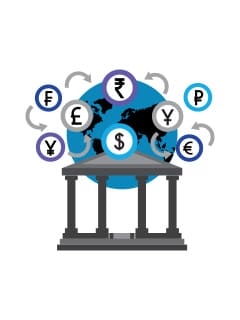CKYC Registry
-
Customer Service Contact us Service request Locate a branch
Find all the help you need
Scan the QR, get our app, and find help on your fingertips

Help CenterSupport topics, Contact us, FAQs and more
-
Login
Are you ready for an upgrade?
Login to the new experience with best features and services
-
Login
Are you ready for an upgrade?
Login to the new experience with best features and services
- Accounts
-
Deposits
IDFC FIRST Bank Deposits
View all Deposits -
Loans
IDFC FIRST Bank Loans
View all Loans - Wealth & Insure
-
Payments
IDFC FIRST Bank Payments
View all Payments -
Cards
IDFC FIRST Bank Cards
View all Cards - Blogs
- Corporate Account
-
Cash Management Services
IDFC FIRST Bank Cash Management Services
View all Cash Management Services - Supply Chain Finance
-
Corporate Lending
IDFC FIRST Bank Lending
View all -
Treasury
IDFC FIRST Bank Treasury
See more details - NBFC Financing
Support topics, Contact us, FAQs and more
- IDFC FIRST Bank Accounts
-
Savings Account
-
Corporate Salary
Account -
Senior Citizens
Savings Account -
First Power
Account -
Current Account
-
NRI Savings
Account -
TASC Institutional
Account -
Savings Account
Interest Calculator
- IDFC FIRST Bank Deposits
-
Fixed Deposit
-
Recurring Deposit
-
NRI Fixed Deposit
-
Safe Deposit Locker
-
FD Calculator
-
RD Calculator
- IDFC FIRST Bank Loans
-
Personal Loan
-
Consumer Durable
Loan -
Home Loan
-
Business Loan
-
Professional Loan
-
Education Loan
-
New Car Loan
-
Pre-owned Car Loan
-
Two Wheeler Loan
-
Pre-owned Two
Wheeler Loan -
Commercial Vehicle
Loan -
Gold Loan
-
Loan Against Property
-
Loan Against Securities
-
Easy Buy EMI card
-
Personal Loan
EMI Calculator -
Education Loan
EMI Calculator -
Home Loan
EMI Calculator
- IDFC FIRST Bank Wealth & Insure
-
FIRST Select
-
FIRST Wealth
-
FIRST Private
-
Mutual Funds
-
Sovereign Gold Bond
-
Demat Account
-
Term Insurance
-
Life Insurance
-
Health Insurance
-
General Insurance
-
Bonds
-
Loan Against
Securities -
Portfolio Management
Service
- IDFC FIRST Bank Payments
-
FASTag
-
Credit Card
Bill Payments -
UPI
-
Funds Transfer
-
Forex Services
-
Pay Loan EMI
- IDFC FIRST Bank Cards
-
Ashva :
Metal Credit Card -
Mayura :
Metal Credit Card -
FIRST Millennia
Credit Card -
FIRST Classic
Credit Card -
FIRST Select
Credit Card -
FIRST Wealth
Credit Card -
FIRST WOW!
Credit Card -
Deals
-
Debit Cards
-
Co-branded Cards
-
Credit Card
EMI Calculator -
FIRST Corporate
Credit Card -
FIRST Purchase
Credit Card -
FIRST Business
Credit Card
- Premium Metal Credit Cards
-
AshvaLifestyle1% Forex₹2,999
-
MayuraLifestyleZero Forex₹5,999
-
FIRST PrivateInvite Only
- Best for travellers
-
MayuraZero ForexMetal₹5,999
-
Ashva1% ForexMetal₹2,999
-
FIRST WOW!Zero ForexTravelLifetime Free
-
FIRST SWYPTravel OffersEMI₹499
-
FIRST Select1.99% ForexLifestyleLifetime Free
-
FIRST Wealth1.5% ForexLifestyleLifetime Free
-
Club VistaraTravelLifestyle₹4,999
-
IndiGo IDFC FIRST Dual Credit CardTravelLifestyle₹4,999
- Max benefits, Free for life
-
FIRST Classic10X RewardsShoppingNever Expiring Rewards
-
FIRST Millennia10X RewardsShoppingNever Expiring Rewards
-
FIRST Select10X RewardsLifestyle1.99% Forex
-
FIRST Wealth10X RewardsLifestyle1.5% Forex
-
FIRST WOW!RewardsTravelZero Forex
-
LIC ClassicRewardsInsuranceShopping
-
LIC SelectRewardsInsuranceShopping
- Reward Multipliers
-
AshvaLifestyleMetal₹2,999
-
MayuraLifestyleZero Forex₹5,999
-
FIRST ClassicNever Expiring RewardsShoppingLifetime Free
-
FIRST MillenniaNever Expiring RewardsShoppingLifetime Free
-
FIRST SelectNever Expiring RewardsLifestyleLifetime Free
-
FIRST WealthNever Expiring RewardsLifestyleLifetime Free
- Rewards & Credit on UPI
-
FIRST Power+FuelUPI₹499
-
FIRST PowerFuelUPI₹199
-
FIRST EA₹NVirtual1% Cashback₹499
-
FIRST DigitalVirtualUPI₹199
-
IndiGo IDFC FIRST Dual Credit CardUPITravelDual cards
- Fuel and Savings
-
FIRST PowerRewardsUPI₹199
-
FIRST Power+RewardsUPI₹499
-
LIC ClassicRewardsInsuranceShopping
-
LIC SelectRewardsInsuranceShopping
- Express and Flaunt
-
AshvaMetal1% Forex₹2,999
-
MayuraMetalZero Forex₹5,999
-
FIRST SWYPEMIOfferMAX₹499
-
FIRST MillenniaRewardsShoppingLifetime Free
- FD Backed rewarding Credit Cards for all
-
FIRST EA₹NVirtualCashback₹499
-
FIRST WOW!Zero ForexTravelLifetime Free
-
CreditPro Balance TransferTransfer & SaveReduce InterestPay Smartly
- IDFC FIRST Bank NRI Forex Solutions
-
Send money to India-Wire transfer
-
Send money to India-Digitally
-
Send money abroad
-
Max Returns FD (INR)
- IDFC FIRST Bank MSME Accounts
-
Platinum Current
Account -
Gold
Current Account -
Silver Plus
Current Account -
Merchant Multiplier
Account -
Agri Multiplier
Account -
TASC Institutional
Account -
Dynamic Current
Account -
World business
Account -
First Startup
Current Account
- IDFC FIRST Bank Business Loans
-
Business Loan
-
Professional Loan
-
Loan Against Property
-
Business Loan for Women
-
Working Capital Loan
-
Construction Equipment Loan
-
Machinery Loan
-
Healthcare Equipment Loan
- IDFC FIRST Bank Business Solutions
-
Payment Solutions
-
Tax Payments
-
Doorstep Banking
-
Point of Sale (POS)
-
Escrow Accounts
-
NACH
-
Payment Gateway
-
UPI
-
Virtual Accounts
-
As per amendment in the Income Tax Rules, PAN or Aadhaar are to be mandatorily quoted for cash deposit or withdrawal aggregating to Rupees twenty lakhs or more in a FY. Please update your PAN or Aadhaar. Kindly reach out to the Bank’s contact center on 1800 10 888 or visit the nearest IDFC FIRST Bank branch for further queries.
-
-
Most Searched
Sorry!
We couldn’t find ‘’ in our website
Here is what you can do :
- Try checking the spelling and search
- Search from below suggestions instead
- Widen your search & try a more generic keyword
Suggested
Get a Credit Card
Enjoy Zero Charges on All Commonly Used Savings Account Services
Open Account Now
Savings Account
Why having multiple Savings Accounts makes sense?
Key Takeaways
Multiple savings accounts help you organise finances and track different goals more effectively.
They promote disciplined saving, reduce tax impact, and curb overspending.
Spreading savings across banks offers better interest rates, added benefits, and DICGC insurance protection.
Savings Accounts keep your money safe, offer high liquidity and are easily accessible. Moreover, these accounts ensure that your money does not sit idle. Savings Accounts offer interest on your savings that helps grow your money over time. Different banks offer different rates of interest. Senior citizens and women can even get a higher rate of interest.
As excellent as they are, a lot of people stick to only one savings account. However, multiple savings accounts can give you greater benefits. Putting your money in more than one account helps you streamline your savings, be financially disciplined, monitor your spending more efficiently, and enjoy multiple benefits from different banks.
So, if you have not opened another savings account other than your primary one, here are some reasons why you might want to change that now.
1. Manage your Savings Better:
Multiple savings accounts allow you to manage your money more efficiently. You can save in different accounts according to your financial and personal goals. For example, you could use one account for a specific purpose like travel, retirement, or a child’s education expenses, and the other for your daily expenses. You could also have a primary account that you use for your regular expenditure, a salary account where you receive your salary, and a joint account with your spouse that both of you can access. In addition, you can have a separate savings accounts as an emergency fund when you have a pressing financial need that requires immediate liquid cash. There is no restriction on the number of accounts you can have.
2. Setting Aside More Money:
Savings Accounts allow you to automate your savings. You can set up automatic transfers from your primary account to your secondary savings accounts. For instance, you can set up a transfer for the 5th of every month. This will ensure that your money gets saved at the beginning of the month. You can then use the remaining balance for your monthly requirements. This helps avoid any kind of overspending. Moreover, if you are only saving in one account and have accumulated a large amount, you may be tempted to spend it. Having smaller balances in several savings accounts controls this urge.
READ MORE
3. Monitor Your Progress Better:
When you have different savings accounts, you can monitor your progress in a better way. You can track individual goals you are saving for, like retirement, a home purchase, etc. With a single savings account or lump-sum savings, it can be hard to gauge how much money you have saved up for an individual goal. You may even have to use the money set aside for goal A towards goal B. But with multiple savings accounts, you never lose clarity. If you are behind on your target, you can take remedial actions and try to save more. Similarly, if you have already achieved one goal amount and are lagging behind on another, you can distribute your savings to other goals. By doing this, you avoid mismanagement of money and stay focused on your final target.
4. Save on Tax:
Every savings account offers interest. This interest is added to your savings amount. In India, the interest that you earn is taxed. Under the Income Tax Act, 1961, the bank deducts tax at source. This is deducted when the interest earned exceeds ₹ 10,000 in an account. So, if you use one savings account to save for your future needs, you would likely have a larger bank balance and, as a result, a higher interest. When you pay tax on it, your earnings would be negated by the tax that you pay. By keeping more than one savings accounts, you will still be earning interest on all these accounts while avoiding the tax levied.
5. Enjoy Different Features and Higher Interest Rates:
Most companies have tie-ups with banks. So, as an employee, you may not always have a say regarding where you open your salary account. If the bank does not offer a higher rate of interest, you will lose out on growing your money. However, you can always open a separate account for your other savings and needs. You can compare different banks and pick the ones that offer the highest benefits and interests. This will facilitate better savings, and you could reach your financial goals sooner than anticipated.
An IDFC FIRST Bank Salary Account is designed to match your income and lifestyle. The Bank makes the process of converting your Savings Account to a Salary Account quick and easy and the transition is packed with benefits. Click here to upgrade today.
6. Your Savings are Insured:
The Deposit Insurance and Credit Guarantee Corporation (DICGC) pays either the equivalent of your savings deposit or up to ₹ 5 lakhs as insurance money in case the bank fails or shuts. All commercial banks, foreign banks, local banks, and regional rural banks are insured under DICGC. Moreover, both the principal amount and the interest amount are insured till up to ₹ 5 lakhs. So, if you distribute your savings among different banks, your money will be insured up to ₹ 5 lakhs. If, however, you have more savings stored in just one bank account, you risk losing your savings if the bank shuts.
How to Use Multiple Savings Bank Accounts to Your Benefit?
It is essential to look for banks that offer a high interest rate to save more and achieve your goals faster. For instance, the IDFC FIRST Bank Savings Account offers interest of up to 7.00% per annum. In addition to this, you also get a free personal accident insurance cover of ₹ 35 lakhs and a free air accident insurance cover for ₹ 1 crore.
Once you have picked a suitable bank, you can open a savings account and start saving. You can automate your savings, fill in your savings account with funds at a steady pace, and live a life free of any kind of financial anxiety. But make sure to keep track of your money, so you know where you stand at all times. You can use the IDFC FIRST Mobile Banking App for tracking your expenses. Multiple savings accounts can help you organise your savings and avoid any room for error. Not only does this ensure better money management, but it also lets you enjoy life without having to worry about anything else. So, go ahead and open more secondary savings accounts!
Disclaimer
The contents of this article/infographic/picture/video are meant solely for information purposes. The contents are generic in nature and for informational purposes only. It is not a substitute for specific advice in your own circumstances. The information is subject to updation, completion, revision, verification and amendment and the same may change materially. The information is not intended for distribution or use by any person in any jurisdiction where such distribution or use would be contrary to law or regulation or would subject IDFC FIRST Bank or its affiliates to any licensing or registration requirements. IDFC FIRST Bank shall not be responsible for any direct/indirect loss or liability incurred by the reader for taking any financial decisions based on the contents and information mentioned. Please consult your financial advisor before making any financial decision.
The features, benefits and offers mentioned in the article are applicable as on the day of publication of this blog and is subject to change without notice. The contents herein are also subject to other product specific terms and conditions and any third party terms and conditions, as applicable. Please refer our website www.idfcfirstbank.com for latest updates.






















